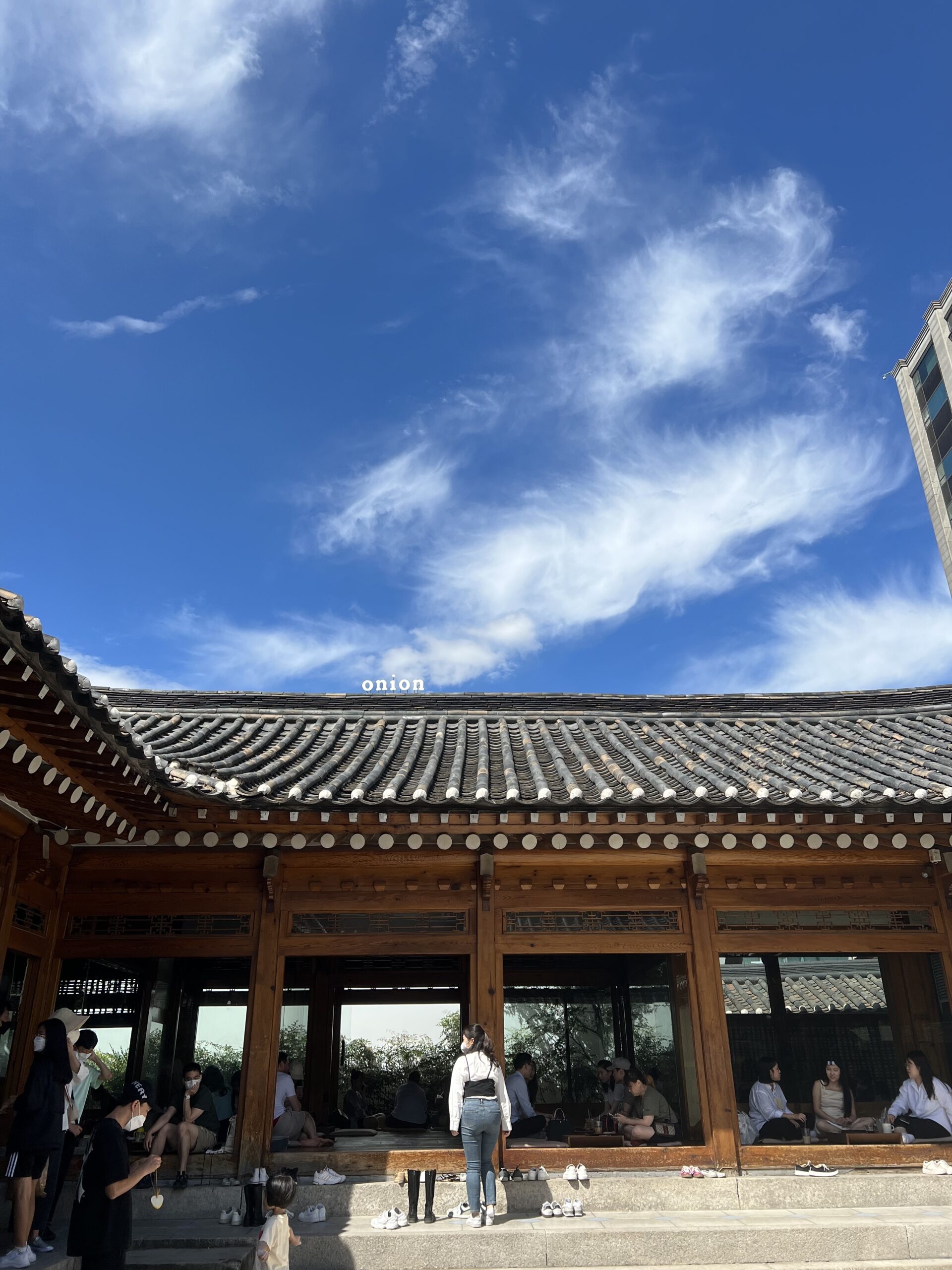
Week 2 – A lesson in culture and history
My second week in Seoul, South Korea has been just as busy as my first. My classes started, I had to make a return at a store with a language barrier (my bed sheets were too small for my mattress!), I tried some famous Korean dishes (gimbap and Korean fried chicken), and I had to prepare for my first typhoon!
On Saturday I met a friend in the Anguk neighborhood of Seoul. We met at an Instagram and TikTok famous café called Onion. The café is housed in a traditional style Korean house called Hanok (from the 14th century). As we walked into the café looking for the counter to order food and drinks, we noticed a lot of unattended bags at different tables. We each grabbed a tray and filled it with the pastries we wanted to try that were lined out in front of the counter. When we made it to the counter to pay for our pastries and order drinks, the cashier asked us if we had already secured a table. When we responded that we had not secured a table, the cashier hesitated before telling us there is a chance we will get our drinks and have nowhere to sit. We got lucky in that we did eventually find somewhere to sit, but it was in the blazing sun.
Through this café experience I learned that South Korea is a very trusting nation. People often leave their bags and other possessions unattended when they leave to order food/drinks, use the restroom, or even leave the café/restaurant entirely for a bit to take a phone call or do other things. The expectation is that no one will touch or steal your possessions while you are gone. I am still nervous to do this, so I always take my most valuable possessions with me like my phone and wallet.
After we were done at the café, we made our way to a one of Seoul’s nearby palaces, Unhyeongung Palace. This former royal residence was used during the Joseon dynasty and was home to the king regent Heungseon Daewongun. While exploring the palace and its small history exhibit, I was surprised to learn that Korea appointed their emperors (they were not part of a divine lineage as was common in many other countries). Emperor Gojong was appointed as emperor at a very young age, so his father acted as king regent until Gojong was old enough to rule on his own. Upon his appointment the residence was changed from a private residence to a palace.
Visiting the palace sparked an interest in learning more about Korea’s ancient history. I will try to take a Korean history class next semester to learn more.

